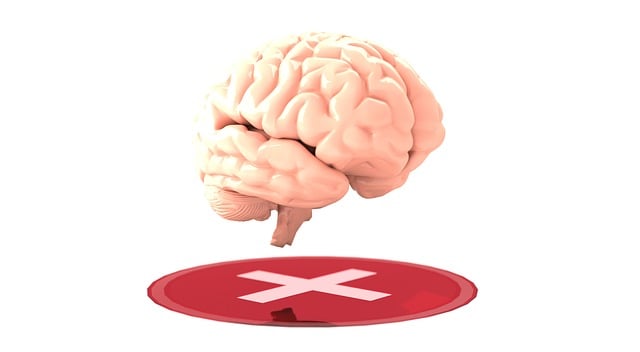TL;DR:
Therapy for adults with men's issues requires mental health professionals to understand and mitigate unique risks, such as emotional trauma, societal pressures, and community violence. By employing Mind Over Matter principles, therapists create safe spaces encouraging self-care and awareness. Risk management planning includes individualized assessments, continuous monitoring, and tailored interventions. A comprehensive approach involves policy advocacy, self-awareness exercises, and proactive safety measures to enhance therapeutic outcomes while addressing male mental health stigma and promoting client care alongside professional well-being.
“In the realm of mental health therapy, effectively managing risks is paramount, especially when addressing complex issues faced by adults. This article delves into a comprehensive risk management planning guide tailored for professionals supporting men’s mental well-being. From understanding inherent risks in adult male therapy to identifying vulnerable populations and crafting robust strategies, we explore practical steps.
We’ll discuss implementation techniques, monitoring tools, and continuous improvement methods, ensuring therapists are equipped to navigate challenges. Discover how proactive risk management enhances therapeutic outcomes for adults with men’s issues.”
- Understanding Risk in Mental Health Therapy for Adults with Men's Issues
- Identifying Potential Hazards and Vulnerable Populations
- Crafting Effective Risk Management Strategies
- Implementation, Monitoring, and Continuous Improvement Techniques
Understanding Risk in Mental Health Therapy for Adults with Men's Issues

Understanding risk within the context of therapy for adults with men’s issues is a nuanced aspect that mental health professionals must master. The unique challenges faced by this demographic often involve complex emotional trauma, societal pressures, and traditional gender roles, all of which can contribute to heightened vulnerability during therapeutic processes.
By applying Mind Over Matter principles, therapists can create a safe and supportive environment that encourages self-care practices and fosters self-awareness exercises. This proactive approach allows for the early identification and management of potential risks, such as suicide ideation or relapse into harmful coping mechanisms. Through individualized risk assessment tools and continuous monitoring, professionals can tailor interventions to address specific vulnerabilities, ultimately promoting positive outcomes for this critical population.
Identifying Potential Hazards and Vulnerable Populations

Identifying potential hazards is a critical step in risk management planning for mental health professionals. This includes recognizing environmental factors that could impact client well-being, such as unsafe living conditions or community violence, which may disproportionately affect vulnerable populations. These populations often include individuals facing socio-economic challenges, trauma histories, or specific mental health diagnoses. Mental health practitioners must be attuned to these risks and develop strategies to mitigate their effects in therapy sessions.
Moreover, understanding the unique stressors faced by adults and men, who frequently engage in therapy for various issues, is essential. Issues like work-life balance, identity struggles, and relationship challenges can contribute to significant mental health concerns. Incorporating burnout prevention strategies for healthcare providers tailored to these demographics is vital for maintaining a healthy therapeutic environment. Regularly evaluating and addressing these hazards through mental health awareness initiatives and community outreach program implementations ensures a comprehensive risk management approach that prioritizes both client care and professional well-being.
Crafting Effective Risk Management Strategies

In crafting effective risk management strategies for mental health professionals, especially when addressing Adult Men’s Issues through therapy, a multifaceted approach is imperative. It involves not only identifying potential risks but also developing proactive measures to mitigate them. Mental Health Policy Analysis and Advocacy play a crucial role in this by ensuring that best practices are implemented and supported at both institutional and regulatory levels. This includes advocating for policies that encourage open dialogue about male-specific mental health concerns, thereby reducing stigma and enhancing access to therapy.
Self-Awareness Exercises can be integrated into the risk management plan to foster a culture of resilience within the profession. By promoting self-reflection and continuous learning, therapists enhance their ability to recognize not only risks in their practice but also in their personal lives, which often intersect with professional boundaries. This holistic approach ensures that trauma support services are not just reactive but proactive, fostering environments where adults, regardless of gender, feel safe and supported during therapy sessions.
Implementation, Monitoring, and Continuous Improvement Techniques

Effective risk management planning for mental health professionals involves a robust implementation strategy that seamlessly integrates into routine practice. This could include establishing clear protocols for client assessment, where therapists meticulously evaluate each individual’s unique circumstances and vulnerabilities. Regularly updating risk assessment tools tailored to specific populations, like men seeking therapy, is essential. For instance, focusing on depression prevention in males might require addressing societal stereotypes and promoting open communication strategies.
Monitoring is a critical component, where professionals regularly review client progress and identify potential risks. This can be achieved through structured sessions that encourage clients to share their experiences and any emerging challenges. By fostering an environment of trust and transparency, therapists can teach valuable social skills training techniques. Such proactive monitoring ensures timely interventions, facilitating continuous improvement in both individual cases and the broader therapeutic framework.
Mental health professionals play a crucial role in treating adults with men’s issues, but effective risk management planning is essential to ensure safe and successful therapy. By understanding the unique risks inherent in this field, identifying vulnerable populations, and implementing robust strategies, therapists can navigate potential hazards successfully. Continuous improvement through monitoring and adaptation ensures that practices remain effective and tailored to the evolving needs of clients seeking therapy for adults with men’s issues.









